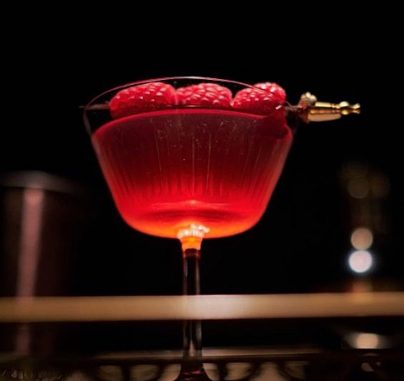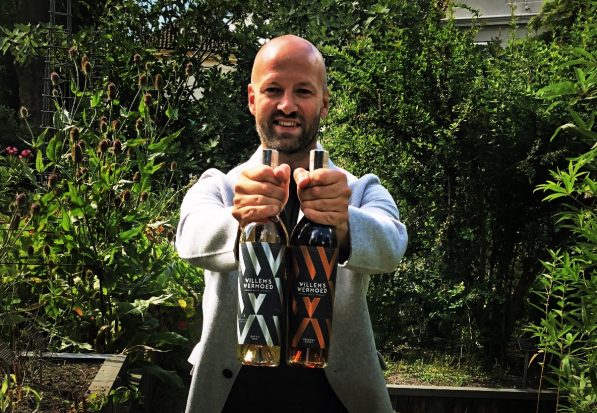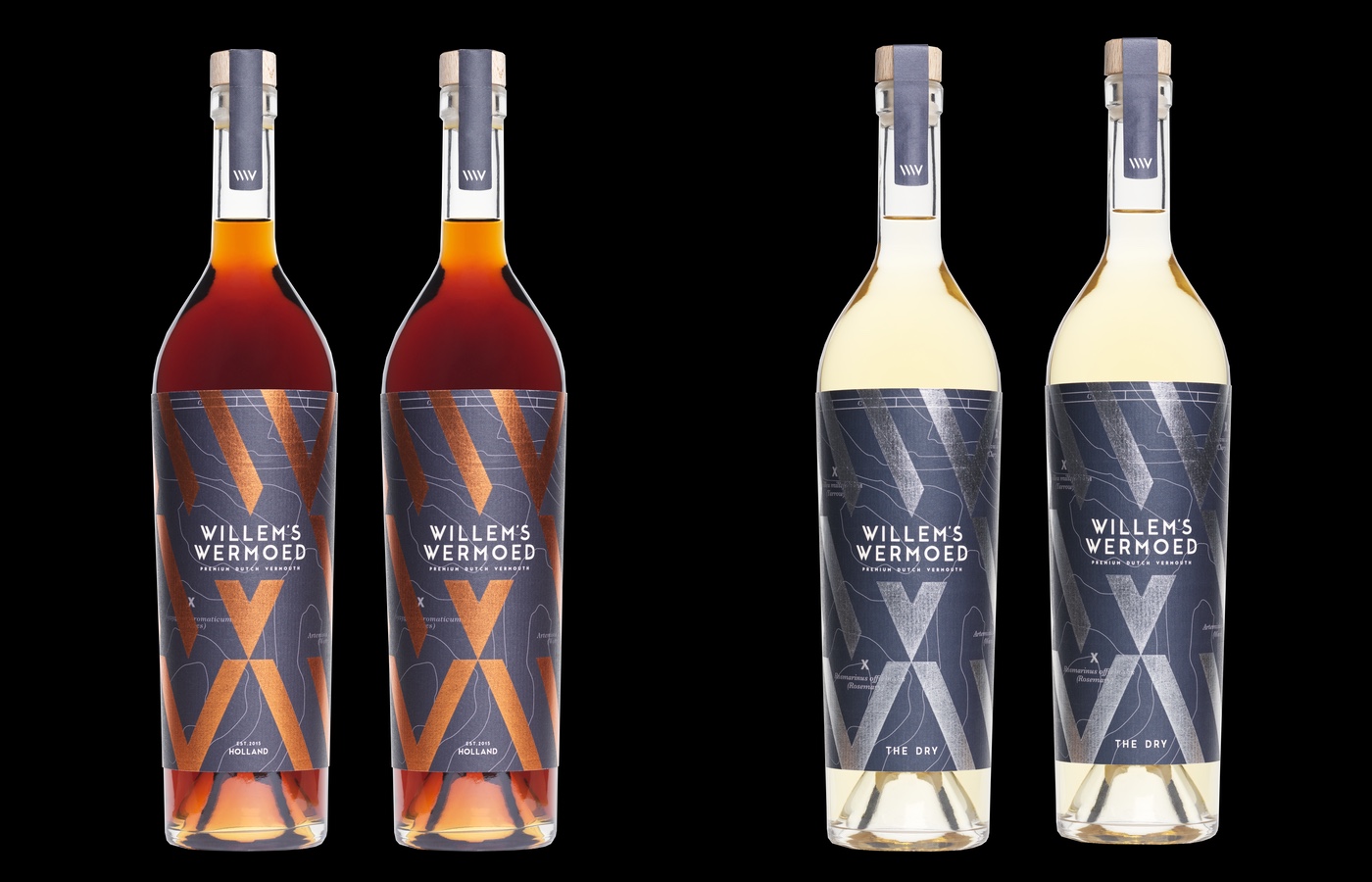Like a good wine, the story of vermouth is one of place. The botanicals and wines used in its development often describe the terroir through the aspects of flavour.
But vermouth is a liquid that also has the ability to recount tales of history, exploration, and the unforeseen. The narrative of the premium Dutch artisanal vermouth brand, Willems Wermoed, encapsulates more than just the fortified wine’s bottles.
To recount the narrative of the brand, we speak with Paul Selier of Selier spirits about botanicals, ageing and the unexpected.
Like a good wine, the story of vermouth is one of place. The botanicals and wines used in its development often describe the terroir through the aspects of flavour. But vermouth is a liquid that also has the ability to recount tales of history, exploration, and the unforeseen. The narrative of the premium Dutch artisanal vermouth brand, Willems Wermoed, encapsulates more than just the fortified wine's bottles. To recount the narrative of the brand, we speak with Paul Selier of Selier spirits about botanicals, ageing and the unexpected.
Thank you for joining us, Paul.
Thanks for having me.
Now, I believe the inspiration from the brand came through Amsterdam's Hortus Botanicus, which is one of the oldest medicinal gardens in the world. What about it inspired you?
To start with, it's a beautiful place located in the city center of Amsterdam. I actually visited the Hortus Botanicus in Amsterdam as a little kid, so it always was on my mind. So, when I had the idea to create a vermouth, I was like, "Hey, the Hortus in Amsterdam is for me, like a starting point, because it also has a beautiful park with all different types of botanicals." So, it's really an inspirational playground.
And what did you find there that you didn't expect?
Well, a lot. In a way, I was there running around like a little kid, smelling everything, tasting everything, and then leaving the Hortus, I had a massive list with all these types of botanicals that I then afterwards ordered via different places. And then the second step was tasting all those botanicals to create a list to start with and actually to create the vermouth, so for me it was really the starting point.
With the Dutch word for wormwood in the name, how important to vermouth is that particular ingredient?
Well, there's actually no vermouth without wormwood, so following the legislation, vermouth needs to have wormwood in it. It also gives a particular bitter taste in vermouth. Personally, I find Gentian, which is also a bitter botanical, more interesting in terms of flavour. But generally speaking, it needs to be in vermouth.
Does that mean that perhaps you've put less wormwood than other vermouths might have and more of the Gentian in?
Yeah, I did. For example, with my Dutch dry, we added some more Gentian, but also, it's finding that right combination of those two. It's about testing and finding that sweet spot.
What other botanicals have you included?
For the vermouth, I started with the original sweets, which I launched in 2016. We use around 24 botanicals. One of my favourites are actually cherry stems and pine tops. Of these, we actually use some extra to really pop them out. But we also use thyme and other warm botanicals, such as cloves and cinnamon. And also, for example, the leaf of the orange tree we use to create this specific taste.
You mentioned the gardens in the middle of Amsterdam, but, were there other brands or other flavour inspirations that you had?
Well, obviously, starting to create a vermouth, you also do a lot of testing of what is on the market. Also, you want to create something unique. Generally speaking, I think in terms of style, my vermouth is between an Italian and the Spanish vermouth. Obviously it's being the first Dutch vermouth, so you're trying to make something that is unique to the market, and for me, that was also really important, to create something unique. Having tasted all those types of vermouth and also different types of wines, because obviously for people who don't know, vermouth is a aromatised wine, so wine is also one of the most important parts in the vermouth. We did a lot of tasting, basically.
You just said that you were somewhere between a Spanish and an Italian. For people who may not be overly familiar with either of those two. Do you want to describe what that means?
Looking at the market, Italian vermouth is obviously well known, and it's quite traditional. Basically, in Spain, there are so many brands. You can talk a lot about it, but generally speaking, I find most of the Italian vermouth more on the bitter side and Spanish vermouth more on the sweeter side. It's somewhere in between, I would say.
You also mentioned that you are the first Dutch vermouth. Being surrounded by countries that have such strong vermouth heritages, how can that be the case? Why are you the first?
That's a good question. Obviously, looking at what is produced in the Netherlands, I think there's quite a revival going on with craft spirits. You see a lot of new Geneva brands. For example, Geneva is quite big in the Netherlands. Gin is also, like other markets, quite a popular spirit. Rum on the rise, but I was like, "Hey, I can create another gin but what is exciting about that? Let's do something unique."
Also personally, I worked as a bartender in different types of cocktail bars. So, I always had a feeling about vermouth, what I like. Because it's basically the pepper and salt in the cocktail and it's super versatile because you can drink it straight from the bottle. You can make it a nice aperitif and easy mixture with it, but it's also an ideal basis for cocktails. So for me, I thought, "Hey, let's do something unique and create the first Dutch vermouth." Looking at the production of wine, more and more wine is produced in the Netherlands, but historically, wine is not so much in the Netherlands compared to other bigger wine markets. I think from that perspective, I just thought, "Hey, let's do something unique."
I was going to ask, the Netherlands does have a burgeoning wine industry, and yet you've chosen a wine from Spain as your base. Why did you choose to do that?
Basically, all the stubborn Dutch people want to keep their wines for themselves. Maybe in the future, I will do something with it. It's also something that I'm definitely open for. But also, looking at creating a product, you also need to look at price and the price of the one in Netherlands is also much, much higher than other big wine markets, just because the yield is much lower in Netherlands than other bigger wine countries, obviously.
And I suppose also because it's such a new industry.
Yeah, exactly that. I'm not saying I'm not going to do it in future, maybe something like a limited edition or something. But in creating a product, you also need to look at price. That's an important part of your route to markets, so to speak.
Aside from price, you could have picked wine from anywhere in the world. Why did you settle on Spain?
Basically, what we did, we ordered around 15 to 20 different types of wines and we started testing. There was a wine from Greece, there was a wine from France, there was a wine from Italy. There was a wine from Spain. We did test the wines and see what was for me, the best starting point to create the vermouth. It was one wine that really stood out for me, personally. That is a wine from Spain, from the Valencia area. And it's actually a wine that aged for two years on old barrels. That was a really good base to create my sweet vermouth. And with that wine, I think were two other wines that made it to the finals, so to speak. We actually created the vermouth and compared it and did a lot of testing to see what was the best one to start with. But for me, it was clear that for me personally, was the winner.
With the botanicals that you've included, what were you looking for in the wine to bring those out?
Creating a vermouth is finding that sweet spot, so it always has a natural level of sugar, a natural level of acidity. And actually, it's not that easy to create a vermouth because you also work with vintages. So every year, you need to look at "Hey, what do we have to play with?" And then finding that sweet spot, about adding the right amount of sugar, adding the right amount of botanicals, and then finding that sweet spot, what I mentioned earlier.
You said you were trying to create a vermouth that was quite unique. Let's turn that on its side and say, what was lacking from the vermouths that you saw on the market that you think is present in yours?
I was really about to create a vermouth that is accessible because having tasted a lot of vermouth with other people, for some people, vermouth is not that accessible because of the level of bitterness, for example. So, I wanted to create something that was more accessible to actually reach more people, but also to still create something unique in terms of flavour. And I think that is what I found that people really enjoyed, because most of the people who are not into vermouth actually are quite positive about Willem's vermouth. So, that is for me, obviously a compliment. But also, I wanted to have a product that is still also interesting enough for bartenders to create different types of cocktails with. I was really betting on those two horses and that worked out quite well, I have to say. For example, if you compare the two flavours that I have, the sweet one and the Dutch Dry, Dutch Dry is a little bit more out there. What I see now is that the original sweet, it's one that people like, but the Dutch Dry is more specific. It also has to do with sweetness, obviously.
What do you mean it's more specific?
More specific in terms of taste, so I would say it's a dry vermouth. Basically how you categorise vermouth is the level of sugar that's in there. The dry vermouth has more bitterness than the sweet vermouth, and it's also much less sugary. I would say in general dry vermouth is not for everyone. If you compare sweet vermouth with dry vermouth, in general, people enjoy sweet vermouth more than a dry vermouth, let's put it that way, that sweet vermouth is just more popular than dry vermouth overall.
There's probably more cocktails that have been made with a sweet vermouth that dry.
That's true, for sure. Obviously, you have the martini cocktail, but not a lot of the vermouth goes in the martini cocktail. Generally speaking, more of the classics of a sweet vermouth, let's say off the top 10 cocktails, for example, the Negroni, Manhattan, obviously those drinks are made with sweet vermouth.
Tell us a little bit about where the Willem part of the name actually came from.
Yeah, sure. It's obviously a well known name in the Netherlands, and also we have a rich history with explorers of people with the name Willem and being the first Dutch vermouth, I really wanted to accentuate the Dutch part of the product. So, for that reason we called the product Willem's vermouth. The second part of it is wormoed, which is the old Dutch name for wormwood. Wormwood, we've spoken about it, needs to be included in vermouth, so for me, that all came together in that sense.
You spoke about a number of explorers being named Willem. Do you see your vermouth as a bit of an exploration for people to taste, or was just doing it an exploration for you?
I think both. For me, it was definitely a journey to create vermouth. I think I worked on it for almost two years. Finding the right wine, finding the right botanicals to get it with the Hortus Botanicus, which I partnered with. But actually, they were quite enthusiastic about the idea that I want to create a vermouth inspired by their botanical gardens. It was quite cool. I did a lot of tasting with people and still, some people have a certain idea about vermouth, and then they actually taste my vermouth. They're actually quite positive about it. And they're like, "Hey, I didn't expect this at all." So from that sense, it's also a exploration for those people who taste my vermouth. Obviously, you cannot please everyone, that's fine, but the positive feedback I get really gives energy. For them firstly, I think also an exploration in a category they're not familiar with that much.
Do you want to take us through how it's made? How was the vermouth crafted?
Sure. We actually made different tinctures of botanicals and we carefully blend those tinctures with the wine. The wine for the sweet vermouth comes from Spain and the wine for the Dutch dry vermouth comes from the Languedoc, South of France. That wine is also why I spent so much energy in sourcing the right wine, because having a good wine is the starting point. The tinctures that we use are then being blended with the wine. And then we do a filtration of the vermouth and then we actually bottle it. That is the process, which takes about a week to create. We actually also have the wine from Spain has aged for two years on Oak barrels, so that gives a lot of flavour that also has quite a pronounced taste. That is for the sweet vermouth, very important.
I believe that you also age in barrels?
No, actually we tried it with the original sweet, but it didn't really give a lot of extra to it. Also because the wine that we use from Spain already aged for two years on Oak barrels, for us, that gave enough flavour to just create the vermouth on itself. So, we don't age the vermouth.
As you've mentioned, there are two variations, the sweet and the dry. Do you want to take us through each one and explain perhaps what people should expect from the flavours?
Sure. To start with, the original sweet, the wine is from Spain. It's a blend of two grapes, Iran and Sonema grape. Basically, this vermouth can be enjoyed on itself very much so, or for example, with little bit of soda water. It's perfect to enjoy as an aperitif, as a spritz, but also for classic cocktails. It's very versatile. That's what I also personally like so much about the vermouth. The Dutch dry, that's a blend of [inaudible 00:18:40]. As I mentioned, it's from the Languedoc region in France. That's much drier, but can also be enjoyed just on ice before dinner, very easy, but can also be enjoyed as an aperitif, with some tonic water, as a spritz or in a martini cocktail. What people can expect from the taste, I think it's interesting to mention the tasting notes of the international wine and spirits competition I joined two years ago. We won silver and 90 out of 100 points. It's a compliment that you win such a medal. I think it's interesting to just mention what they say about the taste. They say it's mid gold colour, Morello cherry, pink gooseberry, dried herbs, and quince gin on the nose. On the palette come cherry sourness, sweet minty, and raisin as herbs and peppery spice, medium white, good mix of material, with a fruity peppery finish.
Yeah, that's good. That's obviously about the dry vermouth. My favourite botanicals in that one are sage, thyme and gentian, but also, it includes rhubarb roots, mint and Juniper. Also, we looked at, "Okay, what can we do differently? Especially with the dry vermouth, can we do crazy stuff?" For me, it's really flavour first. Traditionally, there are a lot of different types of botanicals that are used, but using Juniper, for example, but also the pine tops and the cherry stems and the other in the sweet vermouth, is something that I think no other vermouth did before. It's definitely is an interesting flavour profile.
How should people approach the vermouth? Should they make a cocktail that they are used to, or should they drink it on its own initially? How should they first explore it?
I always say always try it neat first. Or for example with a combination of a little bit of soda water to really open the vermouth, but always try it neat first. Also, maybe compare it with other brands, see how it stands out or not. When I do tastings in bars, I also do a lineup of different types of vermouth to really compare it and to see, "Hey, what kind of drinks would you make with it?" You can make the classic cocktails with it. You can drink it just on ice. For example, the sweet one is very nice on ice with a spring of thyme and a slice of orange. Again, that is what I find interesting, you can enjoy it in so many ways and it's about trying different types of drinks and see what you like best.
If people are to experiment and try different drinks, what flavours do you think work particularly well, both with the sweet and the dry, that they should be incorporating in their experimentation?
What I find interesting, what I see here in Amsterdam, a lot of cocktail bars, they create cool stuff with it. When I go to a bar and say, "Hey, what would you create with this vermouth?" But one thing that I find interesting is also that there is a Michelin star restaurant that's called Rijks, and they actually with the dry vermouth make a vinaigrette then they have such a very nice dish with oysters, for example. Also, I never thought about it, creating or using my vermouth in that way, but actually the Michelin star chef created this dish and he called me over saying, "Hey, you really need to try this." For me, that was really also an eye opener, that you can also do these cool stuff with vermouth.
What do you think it was about the oysters that worked so well? Was it the saltiness?
Saltiness, for sure. Looking at the vermouth in general, it always has sweetness, some bitterness. Saltiness is not in there, so I think that brings it together. I thought it was quite genius, actually.
What other ways have bartenders been using the vermouths that has interested you?
I really personally liked the reverse Manhattan. I really liked that. Also, a very simple cocktail that you can make by yourself, I think it's called the gin and it, and it's a classic cocktail where you do a 50-50 with gin and sweet vermouth and then possibly adding some bitters. That's really a happy marriage. I really love that, that 50-50, gin and vermouth cocktail. That is for me, actually, one of my staples that I drink at home, I really like it. But then also, the easy spritzers, very accessible. For example, there are many places in the Netherlands where people create a spritzer with Willems Wermoed . We did not talk about it, there's a bar in Amsterdam called the Vesper bar and together with them, we actually created a limited edition. So, we only did 400 bottles. It's basically called the forest. We really wanted to champion the seasonality. So last year, we actually took the original sweet vermouth as a basis, and then we added ingredients such as lapsing souchong, porcini mushrooms and black cardamom. It gives a smokiness and savoury flavour to the vermouth. We created it with the classic and the Negroni and Manhattan in mind. While it's almost sold out now, we didn't push it very much. It's been sold at the Vesper bar and some other cocktail bars in Amsterdam. We sold some online and I think I have four boxes left and then that's done, but it was quite outspoken flavour. But bartenders were really super enthusiastic about it because a vermouth, they never tasted it before, so it's also cool to see what you can do that is really out there in terms of flavour. This one worked out quite well.
Being such a young brand, is doing those 'limited edition flavour', 'priority flavour' expressions, something that you're going to be doing in future?
Yes, for sure. I really enjoy doing it. It also keeps your brand alive, I think, doing cool collaborations with different types of cocktail bars, or maybe even chefs. So yeah, for sure. I'm always looking at those possibilities. Actually, almost a year ago now, together with a local Geneva brand, we made I think a hundred litres on a barrel if I'm not mistaken. So, we will create a bottled cocktail also, a limited edition. So, what I said. It keeps your brand alive and it's also very good from a marketing perspective to create things where people say "Hey, this is really cool. I want to know more about it." So yes.
Obviously this wouldn't be the case in Holland itself, but when you are trying to sell the brand to other countries through Europe or through the world, is it difficult to sell the concept of a Dutch vermouth?
Well, some people are skeptical and it definitely needs some explanation, but I think in whole of Europe, vermouth is created not only in the Netherlands, and I think it is an interesting thing that new types of vermouth are being created because you have all these traditional brands, but for me, it's flavour first. So, I think creating new types of vermouth with new types of botanicals creates new different flavour profiles. Generally speaking, I think that's a good thing.
And that is for me, is the door opener. So if you talk about people, distributors, et cetera, they are open for new things and I think that's a good thing. I mean, not only in the Netherlands. Vermouth is being created also in Belgium, in Germany. I think even in the Nordics nowadays. I think it's also good for the category in general.
You were talking earlier about spritz cocktails. That is a style that is taking over a little bit at the moment. What would you say would be your favourite spritz recipe that uses your vermouth?
I think the one I liked very much actually for the original sweet is actually using the vermouth equal measures, sweet vermouth, a soda water, and a quality sparkling wine. That one works quite well. And a lot of bars in the Netherlands, they like it also, doing something different.
So that is my personal favourite, serving it with a sprig of thyme and a slice of orange. And for the dry vermouth, it's one measure of dry vermouth and two measures of tonic as a Willem's dutch dry spritz. That one's also very easy to make and it also works quite well. That's what I get back from people who drink my vermouth at home. For them, it's a new way of enjoying the vermouth, but then they also mention "Hey, this is now actually my go to drink." So, that's really cool.
That's great. Whereabouts is the vermouth available?
Obviously, Netherlands, quite widespread, focusing on the bigger cities in the Netherlands. But also, I sell it online via my website. I export to Germany and Canada, and hopefully more countries following soon, obviously. So if there are any distributors listening who are interested, please drop me a line. And I think also, because Willem's vermouth, for some people it can be a difficult name, I also claimed URL dutchvermouth.com. So, I think that's quite easy for people to access my website and there, they can also obviously see more information about the brand.
What are the plans for the future of the brand?
I will do a lot of extensions. Two new products over the next 12 months. I'm focusing on growth in the Netherlands, but also, obviously focusing on more export countries. And the bottle cocktail, which I mentioned, which I will do. That will be the focus for the future.
Which countries are you thinking of trying to export to next?
The Nordics, but also, Southern Europe and Europe in general. That will be the focus to start with. Also, I'm looking into the US. That's it for now, but obviously, I will look at it case per case. So if there's anything interesting, I will have a look at it and see where we can do business together.
Excellent. All right. Well, if people want to know more about the brand or look at purchasing some bottles, they can obviously go to your website, which is willemswermoed.com, which is spelled W I L L E M S W E R M O E D dot com. And you mentioned also the other website, which is linked to it,
Dutchvermouth.com.
Dutchvermouth.com. Excellent.
Yes. That's basically it.
All right, Paul, look, thank you so much for your time.
Thank you so much. I really enjoyed it. Thank you.
For more information on Willems Wermoed, go to willemswermoed.com or dutchvermouth.com









